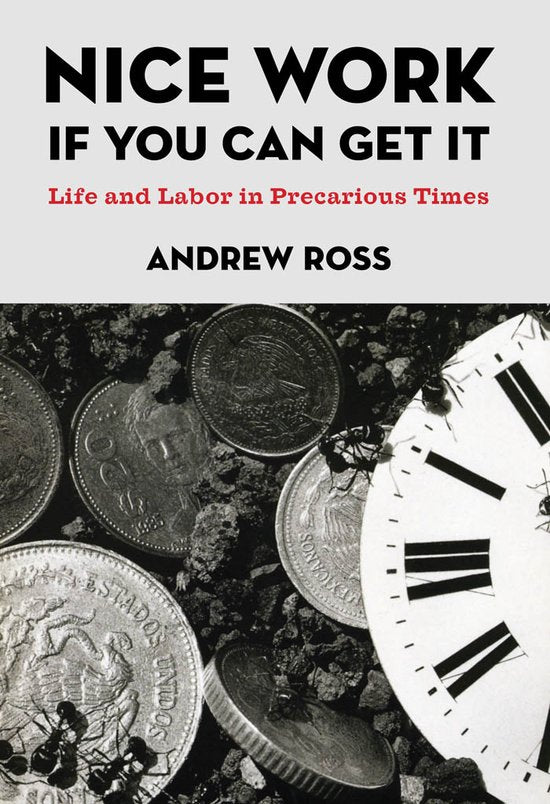De Boeken van Wouter
Nice Work If You Can Get It
Nice Work If You Can Get It
Couldn't load pickup availability
Verzending is beschikbaar op maandag en vrijdag
Meestal verzonden binnen 1–4 dagen na bestelling
4 boeken kopen = 3 betalen
Gratis verzending vanaf €25
Titel: Nice Work If You Can Get It
Schrijver: Andrew Ross
Bindingswijze: Paperback
EAN: 9780814776919
Conditie: Redelijk
Let op: Hieronder staat een algemene beschrijving van hoe wij onze conditietypes classificeren. Als u een nauwkeuriger beeld wilt of specifieke vragen heeft, stuur ons dan een bericht en we kijken het graag voor u na.
Conditie-omschrijvingen:
- Als Nieuw: Nauwelijks gebruikssporen, bijna als nieuw.
- Goed: Kan lichte gebruikssporen vertonen, zoals wat verkleuring of een naam op de schutbladen, maar doorgaans geen onderstrepingen of aantekeningen in de tekst.
- Redelijk: Boek in redelijke staat. Kan gebruikssporen vertonen, zoals verkleuring, leesvouwen in de rug, onderstrepingen, aantekeningen, lichte vervuiling aan de randen, ezelsoren of een kromme rug.
- Nieuw: Boek is nieuw.
Beschrijving:
Are we all temps now? A penetrating exploration of how making a living has become such a precarious task
2009 Choice Outstanding Academic Title
A survey into an emerging pattern of labor instability and uneven global development
Is job insecurity the new norm? With fewer and fewer people working in steady, long-term positions for one employer, has the dream of a secure job with full benefits and a decent salary become just that—a dream?
In Nice Work If You Can Get It, Andrew Ross surveys the new topography of the global workplace and finds an emerging pattern of labor instability and uneven development on a massive scale. Combining detailed case studies with lucid analysis and graphic prose, he looks at what the new landscape of contingent employment means for workers across national, class, and racial lines—from the emerging “creative class” of high-wage professionals to the multitudes of temporary, migrant, or low-wage workers. Developing the idea of “precarious livelihoods” to describe this new world of work and life, Ross explores what it means in developed nations—comparing the creative industry policies of the United States, United Kingdom, and European Union, as well as developing countries—by examining the quickfire transformation of China’s labor market. He also responds to the challenge of sustainability, assessing the promise of “green jobs” through restorative alliances between labor advocates and environmentalists.
Ross argues that regardless of one’s views on labor rights, globalization, and quality of life, this new precarious and “indefinite life,&” and the pitfalls and opportunities that accompany it is likely here to stay and must be addressed in a systematic way. A more equitable kind of knowledge society emerges in these pages—less skewed toward flexploitation and the speculative beneficiaries of intellectual property, and more in tune with ideals and practices that are fair, just, and renewable.
Share

